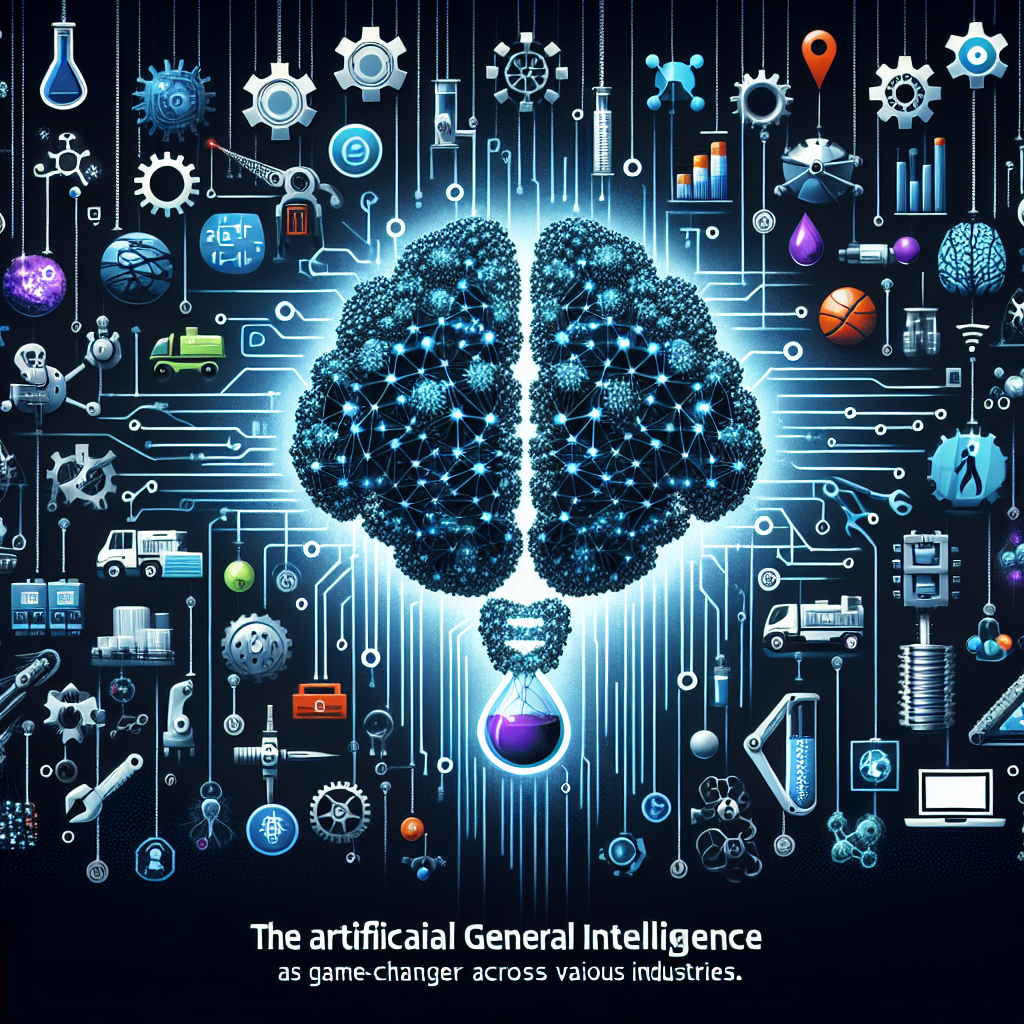In recent years, the field of artificial intelligence (AI) has made significant advancements, with the development of artificial general intelligence (AGI) being one of the most exciting breakthroughs. AGI refers to a type of AI that possesses the ability to understand, learn, and apply knowledge in a wide range of tasks, much like a human being. This level of intelligence has the potential to revolutionize industries across the board, providing new opportunities for growth, efficiency, and innovation.
Unleashing the power of AGI has the potential to be a game-changer for industries everywhere. From healthcare to finance, manufacturing to transportation, AGI has the capability to transform the way businesses operate, making them more competitive and profitable in the process. In this article, we will explore the potential impact of AGI on various industries and how businesses can harness this technology to drive growth and success.
Healthcare
One of the industries that stands to benefit the most from AGI is healthcare. With the ability to analyze vast amounts of medical data, AGI can help doctors and healthcare providers make more accurate diagnoses, develop personalized treatment plans, and improve patient outcomes. AGI can also streamline administrative processes, such as scheduling appointments and managing electronic health records, making healthcare more efficient and cost-effective.
Finance
In the financial sector, AGI can be used to analyze market trends, predict stock prices, and optimize investment strategies. By processing massive amounts of data in real-time, AGI can help financial institutions make better decisions and reduce risk. AGI can also be used to detect fraud and money laundering, ensuring the security and integrity of financial transactions.
Manufacturing
In the manufacturing industry, AGI can revolutionize the production process by optimizing supply chains, improving quality control, and reducing downtime. By using AGI to analyze production data, manufacturers can identify inefficiencies and bottlenecks, leading to increased productivity and cost savings. AGI can also be used to develop new products and services, driving innovation and competitiveness in the market.
Transportation
In the transportation industry, AGI can improve safety, efficiency, and sustainability. By using AGI to analyze traffic patterns, optimize routes, and predict maintenance needs, transportation companies can reduce accidents, emissions, and costs. AGI can also be used to develop autonomous vehicles, revolutionizing the way people and goods are transported.
Retail
In the retail sector, AGI can enhance the customer experience by personalizing recommendations, improving inventory management, and optimizing pricing strategies. By analyzing customer data in real-time, AGI can help retailers understand consumer behavior and preferences, leading to increased sales and customer loyalty. AGI can also be used to automate routine tasks, such as restocking shelves and processing orders, freeing up employees to focus on more strategic activities.
FAQs
1. What is the difference between artificial general intelligence (AGI) and artificial narrow intelligence (ANI)?
AGI refers to a type of AI that possesses human-like intelligence and can perform a wide range of tasks, while ANI is designed to perform specific tasks or functions. AGI has the ability to learn, reason, and adapt to new situations, making it more versatile and powerful than ANI.
2. How does AGI learn?
AGI learns through a process called machine learning, which involves training algorithms on large amounts of data to recognize patterns and make predictions. AGI can also learn through reinforcement learning, where it receives feedback on its actions and adjusts its behavior accordingly.
3. What are some of the challenges of implementing AGI in industries?
Some of the challenges of implementing AGI in industries include data privacy and security concerns, ethical considerations, and regulatory compliance. Companies must also invest in the necessary infrastructure and talent to effectively leverage AGI in their operations.
4. How can businesses prepare for the adoption of AGI?
Businesses can prepare for the adoption of AGI by investing in AI talent, developing a data strategy, and creating a culture of innovation and experimentation. Companies should also collaborate with AI vendors and partners to stay abreast of the latest developments in AGI technology.
In conclusion, the power of artificial general intelligence is poised to revolutionize industries everywhere, providing new opportunities for growth, efficiency, and innovation. By harnessing the capabilities of AGI, businesses can drive success and competitiveness in the market, leading to a brighter future for all.

